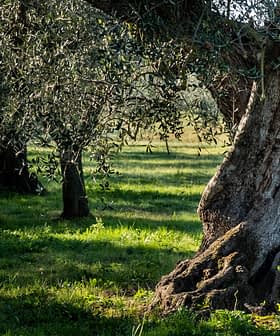An innovative project in the area of olive oil testing and quality rating has been launched in Spain.
The collaborative effort between several important industry bodies aims to find a technological instrument that complements or replaces the current panel test.
What is clear is that Spain… has the best conditions for researching and obtaining the best methodology at the service of our sector, and therefore we have an essential role in the European regulatory development of olive oil.
An agreement for the project was signed by the Ministry of Agriculture, Fisheries and Food (MAPA), the Ministry of Agriculture, Livestock, Fisheries and Sustainable Development of the Junta of Andalusia, and the Interprofessional Organization of Spanish Olive Oil.
See Also:Laws Governing Olive Oil Sector in Spain Set to ChangeTo kick off what might likely be a lengthy timeline, the Interprofessional Organization of Spanish Olive Oil will contribute €150,000 toward the first two years of the research and innovation project.
“Like any scientific-technical research evaluation project, its development takes a long period of time,” a spokesperson from the MAPA told Olive Oil Times.
The International Olive Council (IOC) panel test has been used in Europe to classify the commercial category of virgin olive oil since the 1990s. The methodology has been regularly updated over the years.
“The panel test is a proven, objective method carried out by tasters trained and accredited by ENAC, and subjected to intercomparison sensory analyses that demonstrate its robustness,” the MAPA spokesperson said. “However, any scientific-technological advance that allows us to process more samples with guarantees and rigor will always be welcome as a tool to improve food quality control.”
ENAC is the national accreditation body for Spanish organizations and its certifications are recognized in more than 70 countries. According to the Official State Gazette (BOE) of Spain, the olive oil sector is one of the most important in the Spanish agri-food sphere, and controlling its quality is fundamental.
The physical, chemical and organoleptic characteristics of olive oil are already regulated by the European Union (E.U.). While E.U. legislation is among the most advanced in this area, this project could potentially lead to even further strengthening of controls.
When asked whether a successful technological testing instrument could go on to be used outside of Spain, the MAPA said, “it is not a question that we can foresee in the short term.”
“What is clear is that Spain, being the largest producer of olive oil in the world and a leader in its trade and in its laboratory and sensory analyses, has the best conditions for researching and obtaining the best methodology at the service of our sector, and therefore we have an essential role in the European regulatory development of olive oil,” the ministry added.
This project comes at a critical time for olive oil. With olive oil consumption set to outpace production this season, prices are being driven up. As competition increases, assuring quality is key in protecting the rights of the consumer.
As well as being involved in this innovative project, the MAPA said, “the MAPA is going to approve an olive oil quality standard in mid-2021 that will place Spain as a benchmark for excellence in the production and marketing of this food from Spain. This standard is very important since the quality standard for this food has not been updated for more than two decades.”








